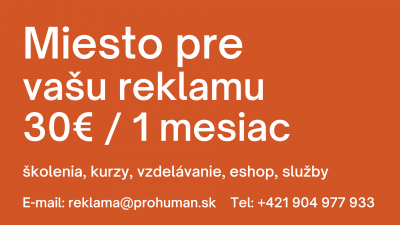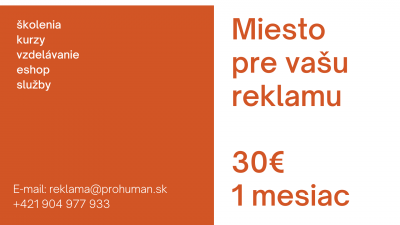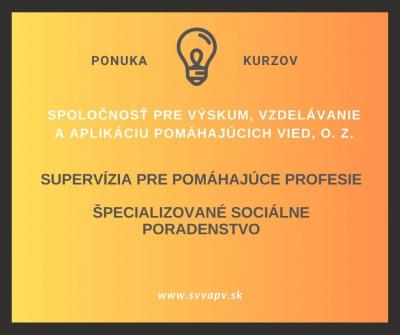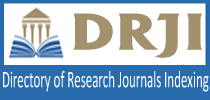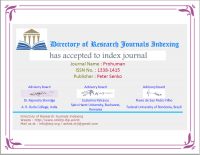Abstract: Europe has a challenge how to combine migration flows with ageing and future shortage of labour skill. Immigrants have their human and social rights. Europe does not use all international human rights instruments. Refugee crisis is also the result of previous wrong decisions. Social justice is not only for people born in EU. Social protection is a universal right which is now completed with right guaranteed minimum. No punishment is entitled in case of human rights giving. Europe has to take its part of responsibility. There will be no full well-being in Europe, while other parts of the World suffer.
Keywords: Human resources. Human rights. Migration. Refugees. Social justice. Social protection.
Introduction
Migration and refugees question is very sensible and frequently discussed not among politicians but also common people. Do we know who is a migrant? Migrants are usually foreign-born, without a local passport, or people who have come from somewhere. Do we know why they are there? Are there moving voluntarily? What pushed them out of the home country? Civil unrest, war, poverty, unemployment or something else? From time to time, we are not able to understand a difference between intra-European free movement and migration from the third countries. The most important is to distinguish between EU internal free movement of people and the “so called” third country immigration. Roma people from Romania have different status in comparison with illegals from Mali. However, local people could feel equal unconformity from them. Are they blessing in time of ageing and missing of new generation or are they threat? Do they have any social rights and why?
HUMAN RESOURCES AND MIGRATION CONTROVERSY
The whole world currently suffers from ageing. Ageing means mainly low fertility and therefore weak generational replacement. However, at global level, Europe is at the forefront of the demographic adverse trends. Following a period of almost 40 years of declining demographic dependency, Europe is currently entering a period of workforce ageing and increasing demographic dependency, as the current generation progressively exits the labour market and joins the ranks of dependent population (Peschner, Fotakis, 2013).
At first glance, the economic downturn and its depressing impact on economic growth and labour demand in particular appear to defer the growing demographic pressure on labour supply. Declining share of economically active population brings new challenges. Some of the best performing EU economies, namely, are already facing labour supply bottlenecks due to the speed at which their workforces are ageing and the lack of labour reserves.
The shrinking workforce (2015 is a breaking point) will hinder employment growth unless spectacular progress has been made in a range of relevant policies (activation policies, substantially higher investment in human resources development incentives for higher intra-EU mobility and more effective economic migration and integration policies).
Migration is high on both national and EU agendas. The decline and ageing of the European population has contributed to an increased awareness concerning the need for immigration. The demographic factor, coupled with its foreseeable implications on the various social welfare systems, has provoked increased debate concerning immigration within EU institutions and EU Member states alike.
There is a growing awareness that without immigrants, Europe will not be able to maintain the same standard of living. However, as much as European states are competing with others (USA, Japan...) for highly skilled third-country nationals, a trend can be seen among some EU Member states towards more restrictive policies with regard to other forms of legal immigration, such as family reunification. Not all of proposed active migrant policy are not controversial. Member states are struggling to find an approach to migration that is suitable for highly skilled migrants, preventive for irregular migration and safeguarding the human rights of migrants.
MIGRATION AND SOCIAL JUSTICE
Many desperate people cross border seas of the European Union. Many of them never reach European shores alive. Mediterranean migration as a main route to a “dream-Europe” is neither new nor static. Since the early 1990s, there has been a persistent flow of both irregular migrants and asylum-seekers from across Africa and beyond. The most preferred route is the shortest way from Libya to Italy. Spanish enclaves in North Africa are also popular for immigrants. Humanitarian disaster started after that the ships set off from Turkey (Syria), bypassed both Greece and Cyprus. Human traffickers are abandoning boats that are many times occupied by families with small children. Using much longer route means more days on sea and makes this escape even more danger. New ways are discovered now. On the Black sea they discovered boats, which cross the sea to Romania (Collet, 2015).
From the perspective of global protection, the maritime migration is a symptom of worldwide humanitarian crises. News is daily filled with information about dead migrant bodies found in the sea, or on the shore. Majority of the world’s refugees, expelled from the region of origin, looks in the EU for asylum. These claims have risen over the past couple of years. A number of countries are experiencing enormous amount of increases in applications – notably in Germany, Sweden and Italy. This raises the question of quotas, not welcomed by land-locked countries. Each EU Member State so far manages its own asylum system independently. However, the responsibilities are divided unevenly across the continent, and these mean pressures on national asylum systems. The majority of EU Member States still deals with a very small proportion of the total number of new asylum-seekers each year. National politicians try to “square the circle” of providing effective protection to an increasing number of asylum-seekers in a context of limited public resources and uncertain public support. Immigration is misused by extremist groups and is a part of populist policy anywhere.
Growing number of EU citizens who have departed to fight with insurgents in the Middle East, has catalysed a series of linked policy challenges related to the mobility and cohesiveness of Europe’s populations. At the community level, there are initiatives to prevent young people from departing (to war areas like Syria is), as well as efforts to rehabilitate those who return. At the national level, a number of governments have discussed and implemented policies to confiscate travel documents from those who intend to travel in order to train or fight with extremist groups in the Middle East, and withdraw citizenship from those who choose to return. Discussions are emerging on how to prevent effectively further violent attacks in the absence of internal border controls, and a few checks on citizens arriving at the external borders of the EU.
Asylum claims are likely to remain strong within the EU due to proximity to problematic territories. Instable and unclear situation is in the southern Mediterranean Sea area and in Middle East (Syria, Iraq and the deteriorating situation in Libya). Italy continues to be a hot spot for southern arrivals, due to part to its readiness to conduct search and rescue, but also for opportunities to travel on through it to the rest of the EU. Turkey will remain the biggest host of Syrian refugees. Russian Federation has seen significant asylum applications from the Ukraine. Military activities in eastern Ukraine resulted in a growing number of Polish work permit allocations to the Ukrainian passport holders.
Germany remains an attractive country for intra-European mobility. Trend is likely to continue in it for longer time. Traditional mobility from Central and Eastern Europe are now complemented by emigration from crisis-hit countries across the EU, notably Greece, Italy, Portugal and Spain. Despite expected improvements, unemployment is still high and this fact forces youth to seek opportunities elsewhere. Old challenges, such as language barriers and recognition of existing skills, continually inhibit free movers from maximizing their potential. There is currently little political support at national level for major overhaul of legal migration. The deep opposition is to promote intra-EU mobility of third-country nationals at a time when free movement for EU citizens is in question.
Stronger economies such as Germany and the United Kingdom accept a large number of third-country national workers. Family migration including family members of those given refugee status within the EU remains dominant. Political upheaval is likely to dominate the immigration policy landscape with questions of public confidence in the ability of incumbent governments to manage immigration and asylum systems emerging more strongly (important public concerns about immigration). Key questions emerged whether to place numerical limits on the free movement regime and managing access to public benefits more effectively (also in internal EU migration cases). Many of the populist parties have a strong ethnic tone, whether directed towards Muslim or to Roma populations. Some parties in governments have already adopted anti-immigration positions.
MIGRATION AND HUMAN RIGHTS
Within the Platform of European Social NGOs (Social Platform) public consultation is carried out in Brussels to influence the European Union to make sure that Member States may no longer criminalise humanitarian assistance to undocumented migrants in Europe. The EU law namely allows criminalisation. The European Commission is currently evaluating the Facilitation Directive (2002/90/EC). In Europe humanitarian services including the provision of food, shelter, medical care, or legal advice, may be met with sanctions. This may include restrictions on funding, financial penalties, imprisonment and other forms of punishment. There are also instances where the organisation or an individual providing humanitarian assistance has the duty to report undocumented migrants to the authorities.
Despite the fact that the Facilitation Directive does not encourage criminalisation of those who offer humanitarian assistance to undocumented migrants, statistics compiled by the EU Fundamental Rights Agency (FRA) has found that: 27 Member States punish facilitation of stay (Ireland is the exception, as the Facilitation Directive does not bind it). Thirteen Member States punish facilitation of stay, even if there is no financial motive. Eight Member States punish both facilitation of stay that is not for profit, and for humanitarian reasons. Only eight Member States exempt at least some forms of humanitarian assistance to irregularly staying migrants (Criminalising Solidarity, 2015).
In some EU countries, regional authorities are challenging national legislation through their activities. For example in Utrecht, the Netherlands and similarly in Tuscany, Italy, far-reaching policies were introduced that go beyond national legislation. At national level, favour is still set against service providers who assist undocumented migrants (Cyprus, United Kingdom). However, there are some positive examples of people coming together to defend the human rights of undocumented migrants and the rights of service providers to offer humanitarian assistance. The ‘Let’s Save Hospitality’ (“Salvemos la Hospitalidad”) campaign in Spain successfully lobbied the Spanish government to change its Criminal Code. The Conference of European Churches successfully challenged the Netherlands’s social welfare system in the Council of Europe, which found that it violated the rights of undocumented migrants.
EU Member States have ratified the core international human rights treaties with the exception of the International Convention on the Protection of the Rights of All Migrant Workers and Members of their Families (ICRMW) signed in the UN in 1990. Most of the rights of these treaties protect apply to everyone, including migrants, whether in a regular or irregular situation. Ratification of the ICRMW faces opposition in numerous European States principally on the ground that it protects a group of persons not deemed “entitled” to this level of protection (Guilbert, Plaetevoet, 2011). ICRMW specifically protects the rights of all migrant workers and members of their families including when they are undocumented or in an irregular situation, because they are more vulnerable to abuse. Ratification of the ICRMW would thus represent one-step towards greater recognition and respect of migrants as contributors to European economies. Migration and asylum policies come within the Community competence. From European countries only Albania and Bosnia and Herzegovina so far ratified this international human rights instrument.
European Platform for Migrant Workers' Rights (EPMWR) launched a petition specifically calling on the Member States of the EU to ratify the Migrant Workers Convention. Hundreds of civil society organizations and networks expressed their support, including amongst others: European Social Platform, European Network against Racism, Eurostep, European Anti-Poverty Network, Amnesty International, Human Rights Watch, and International Federation for Human Rights (FIDH), Solidar, the Churches’ Commission for Migrants in Europe and the Euro-Mediterranean Human Rights Network (EMHRN). The European Federation of Public Service Unions (EPSU), the European branch of the Public Services International (PSI), supports the ratification of the ICRMW and calls for a European framework on migrant workers’ rights, based on the Convention. In its Action Plan adopted at the Seville Congress of May 2007, the ETUC expressed its commitment to intensify actions and campaigns at both European and national level in favour of ratification and application of all conventions and important instruments on the protection of the rights of all migrant workers and their families (Plaetevoet, Sidoti, 2010).
The European Convention on the Legal Status of Migrant Workers (prepared in the Council of Europe in 1977) is concerned with the principal aspects of the legal situation of migrant workers. The Convention in particular deals with recruitment, medical examinations, occupational tests, travel, residence permits, work permits, the reuniting families, working conditions, the transfer of savings and social security, social and medical assistance, and the expiry of work contracts, dismissal and re-employment. Personally cover nationals of any contracting party, legally employed and resident in the territory of another contracting party, if the duration of a work contract exceeds six months. The Convention forms, together with the (revised) European Social Charter (Articles 18 and 19 in particular) and the European Convention on Social Security an ensemble of rights that strengthens the protection of migrant workers (Guild, 1999). Since 1977 only 11 Council of Europe Member States ratified this Convention.
Social inclusion principle is many times only rhetoric by the European Union. Without delivery, it is counterproductive in terms of the EU’s own legitimacy (Unequal Europe, 2015). We must be clearer on what social inclusion means in practice, and how member states can deliver it. Universal access to social services is a basic feature of the European social model, and should enjoy greater prominence in a social investment strategy, with access to quality child-care as a prime example: Considering a European policy on the overall quality of minimum income protection, with minimum wages, social benefits, and minimum income protection with reference to the economic development of each EU country. Making the economic case for migration must be complemented with a strong social case for minimum standards and against discrimination based on origin or ethnicity.
There are different definitions of the term well-being. As the essential elements of it, the Gallup scientists identify five:
1. Career;
2. Social connections;
3. Personal economics;
4. Health and
5. Community.
Those are the main contributors to a person’s overall subjective wellbeing. Other terms to describe this are terms such as quality of life, living standards, human development and happiness. In fact, well-being is a broader concept, encompassing a number of different dimensions. It can be measured by asking people how they feel and their perceptions about different aspects of their lives, such as job satisfaction, personal relationships and community attachment. It can also be measured through the collection and verification of objective data such as employment rates, salary levels, and life expectancy and housing conditions. It might be expected that a person with higher scores on objective criteria would be happier – that objective well-being correlates with subjective well-being or happiness. However, the linkages between objective and subjective well-being are quite complex and convergence is not complete. Famous is “Easterlin´s paradox” or similar paradox from economist Carol Graham (2009): the paradox of happy peasants and unhappy millionaires (World Migration Report 2013).
Conclusion
Citizens and politicians have to find solution how to keep sustainable decent life in harmony with other parts of the World. What we have in common is the responsibility for ourselves, for our neighbourhood, for our country, for Europe and for our Earth. Europe is not an island. Our future as humans is interconnected with future of the people on other continents. Peace and social justice is the way. Migration is not a problem, as ageing is not a threat; but problem is weakness of global cohesion and raise of individual selfishness.
Authors:
Asst. Prof. Dr. Miloslav Hetteš
President of International Council on Social Welfare (ICSW Europe)
www.icsw.org
Gabriela Siantova, PhDr.
University of SS. Cyril and Methodius in Trnava
The lecture Migrants And Social Protection Floors - Facilities and Obstacles to Access to Different Welfare State Services in Time of Crisis is from International Expert Seminar, Madrid, 23 April 2015. The presentation is in the attachment.
Bibliography
COLLET, Elizabeth. 2015. Outlook on migration in Europe in 2015. In Migration Policy Practice. ISSN 2223-5248, Vol. IV, Number 5, December 2014–January 2015, pp. 21-28.
Council Directive 2002/90/EC of 28 November 2002 defining the facilitation of unauthorised entry, transit and residence. 2008. In Official Journal of the European Communities, ISSN 0378-6978, L 328, Volume 45, 5.12.2008, p. 17-18.
Criminalising Solidarity [online]. Brussels: Social Platform, 2 pp. [cit. 2015-05-25]. http://www.socialplatform.org/wp-content/uploads/2015/03/Criminalising-S....
GUILBERT, Amandine, PLAETEVOET, Rene. 2011. The U.N. Migrant Workers Convention: Steps Towards Ratification in Europe. Brussels: European Platform for Migrant Workers’ Rights (EPMWR). 32 pp. [cit. 2015-05-25]. European Programme for Integration and Migration (EPIM),
GUILD, Elspeth. 1999. The European Convention on the Legal Status of Migrant Workers (1977). An Analysis of its Scope and Benefits. Nijmegen: University of Nijmegen. CDMG (99) 11, 28 pp. [cit. 2015-05-25]. Council of Europe, Strasbourg. http://www.coe.int/t/dg3/migration/archives/Documentation/Legal_texts/CD....
HETTES, Miloslav. 2015. Human Rights and Social Protection in Social Work (in Slovak). Bratislava: St. Elizabeth University of Health and Social Work, 242 pp. ISBN: 978-80-8132-128-3.
PESCHNER, Jorg, FOTAKIS, Constantinos. 2013. Growth Potential of EU Human Resources and Policy Implications for Future Economic Growth. Brussels: DG Employment Working Paper 03/2013, 102pp. ISBN 978-92-79-32715-5.
PLAETEVOET, Rene, SIDOTI, Marika. 2010. Ratification of the UN Migrant Workers Convention in the European Union. Survey on the Positions of Governments and Civil Society Actors. 2010. La Strada. European Network against Trafficking in Human Beings, 99 pp. [cit. 2015-05-25].
Unequal Europe recommendations for a more caring EU. Final report of the High-level group on “Social Union”. Spring 2015. Brussels: Friends of Europe, 21 pp. [cit. 2015-05-25].http://www.friendsofeurope.org/media/uploads/2015/02/Social-Report-2015-FINAL-WEB.pdf.
World Migration Report 2013, Migrant Well-being and Development.2013. International Organization on Migration, Geneva, 220 pp. ISBN 978-92-9068-668-2.
| Príloha | Veľkosť |
|---|---|
| Migrants_And_Social_Protection_Floors_in_EU.pdf | 675.26 KB |



